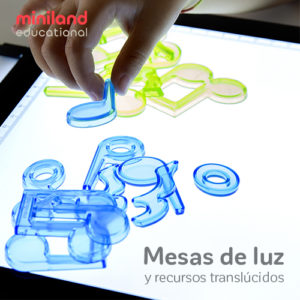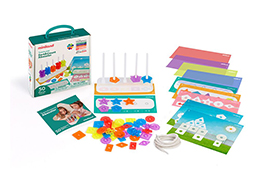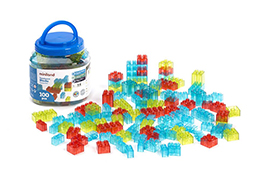Letting specialty toymakers, like Miniland, lighten your load can be the key to unlocking the benefits of a multilingual classroom, without overwhelming you with the need to learn a new language yourself, increase your workload, or ask impossible things of your children. We share what you can expect from a multilingual atmosphere and how educational toys like Miniland’s ABC Monster help you invite the magic in.
Multilingual classrooms foster essential 21st-century skills
By learning another language, children begin to understand — and master — language as a system of representing meaning in the world. Along with creative arts education, a firm grounding in language and literacy gives children the insurance that they’ll always be able to communicate meaningfully with the world around them. The ability to communicate effectively is considered one of the essential “4 C” skills necessary for success in the 21st-century and is essential to anyone’s psychosocial health.
.jpg?width=499&name=31977_3%20(1).jpg)
Miniland’s ABC Monster is perfect for facilitating educational games that develop multilingual literacy in a non-competitive way. Your children are tasked with building words from letters of the Latin alphabet. Each word is described by interpreting a picture from a game card. This means that words can be built — and these pictures described — in any language, like English, that uses this script.
Multilingual children are more empathic
A classroom that welcomes a multilingual atmosphere is more likely to produce children who understand that to be equal to someone, doesn’t mean they have to be the same as them. Multilingual instruction fosters meaningful diplomacy, by growing children’s appreciation of different cultures and meaning-making systems. When this instruction is included in their day through fun language games like ABC Monster, this end result of empathy is developed alongside the more directly curriculum-related matter of increasing their literacy. While considered a soft-skill, an empathic attitude will consistently provide access to richer, more diverse social networks which help secure their success and social mobility later in life.
Speaking more than one language is better for your brain
Early bilingual proficiency is positively correlated with intelligence. Speaking more than one language from an early age means that your brain has to work harder in those critical development years and you therefore become smarter. Bi- and multilingual children carry this benefit with them for the rest of their lives. With their better understanding of how language functions, bilingual children often grow up to be innovators of language and other meaning-making systems. They’re also found to have better attention spans because they’ve had more practice at paying mindful attention to things like choosing which language to use or interpret. This ability to focus their attention can be further developed by learning aids like Miniland’s Mindful Kids programme, which harnesses these beginnings and grows each child’s ability to practice focussed, non-judgemental awareness through a series of mindfulness exercises that easily integrate into your teaching and learning day.

Multilingualism connects communities
Children who speak multiple languages become better at every language, overall. For example, a Spanish speaking child will eventually be better at English if allowed to draw on their knowledge of their home language in your classroom. A classroom atmosphere that accepts multiple languages, allows for code-switching and even encourages active additional language learning helps ensure that your children remain connected to their home language and community. A game like ABC Monster is a great way to support a second-language speaker’s connections with their home language because it isn’t restricted to English. Any words built from the Latin alphabet can be built by “feeding the monster” and the group nature of the game means that your class can learn from each other by sharing the words that they know for things, across cultural and language divides.
Being bilingual gives children better job prospects
Proficiency in more than one language immediately improves your child’s chances of finding work after leaving school. This is true even if you only speak one extra language. They’re also likely to place immediately into an occupation and role of higher social status than their monolingual counterparts and immediately draw higher incomes. This is due not only to the fact that speakers of more than one language have more highly developed cognitive skills and therefore perform better at general tasks (on average), but also because they have access to a wider job market. By committing to including games such as ABC Monster into your teaching day, you’re helping your children attain relevance in the economy they are set to enter.
Given the vast benefits available to speakers of multiple languages, Miniland educational toys are specially designed to support you in creating a multilingual classroom. Each game or toy is accompanied by a didactic guide that allows for English, Spanish, French, German, Portuguese, or Italian instruction. While you might not make use of all of these, it pays to know you have some extra possibilities in your back pocket when faced, perhaps, by a new addition to your class who may value beginning with a friendly “Hello” in their home language. Find out more about how you can support multilingual education in your classroom by exploring our catalog.
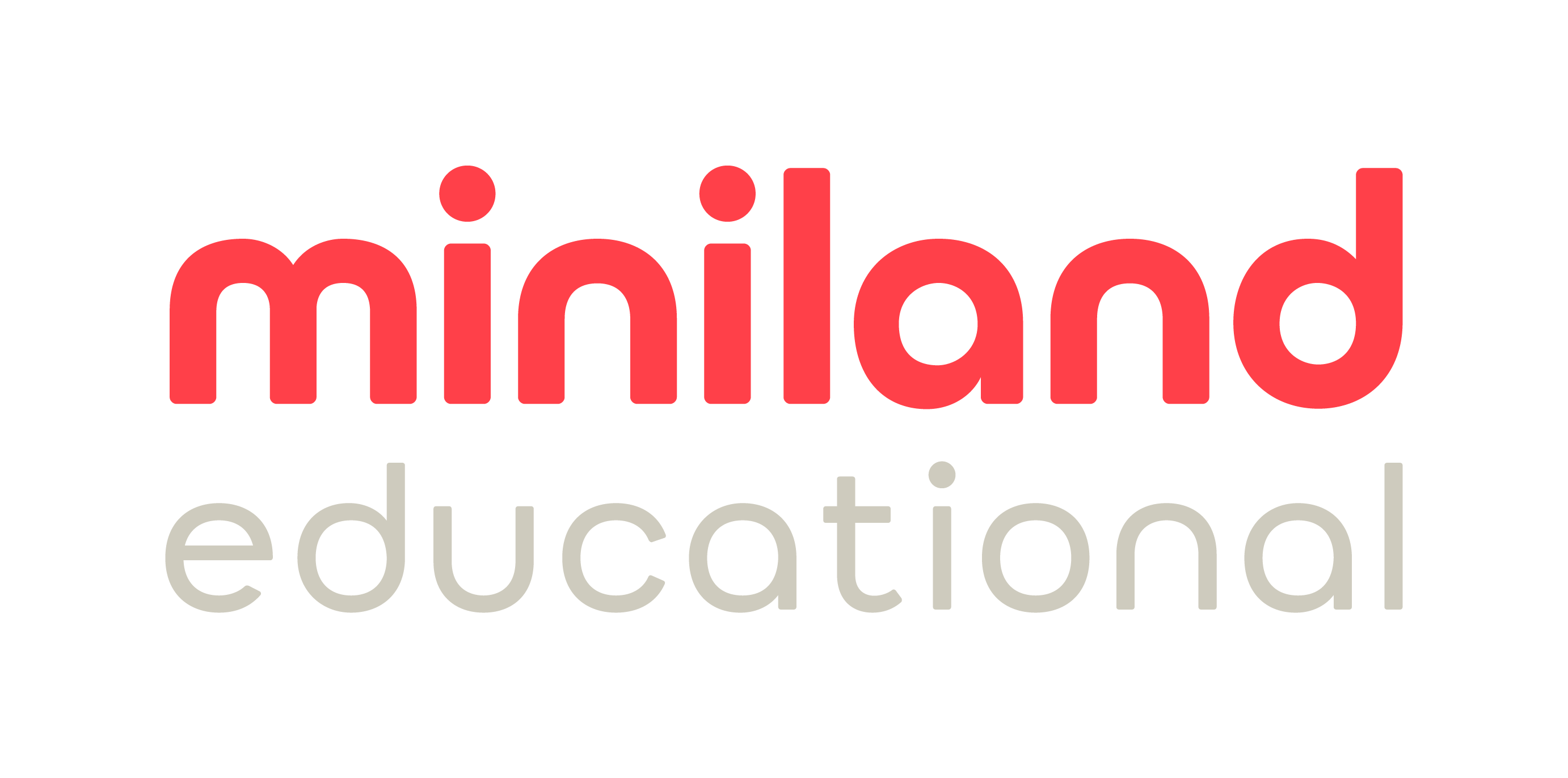
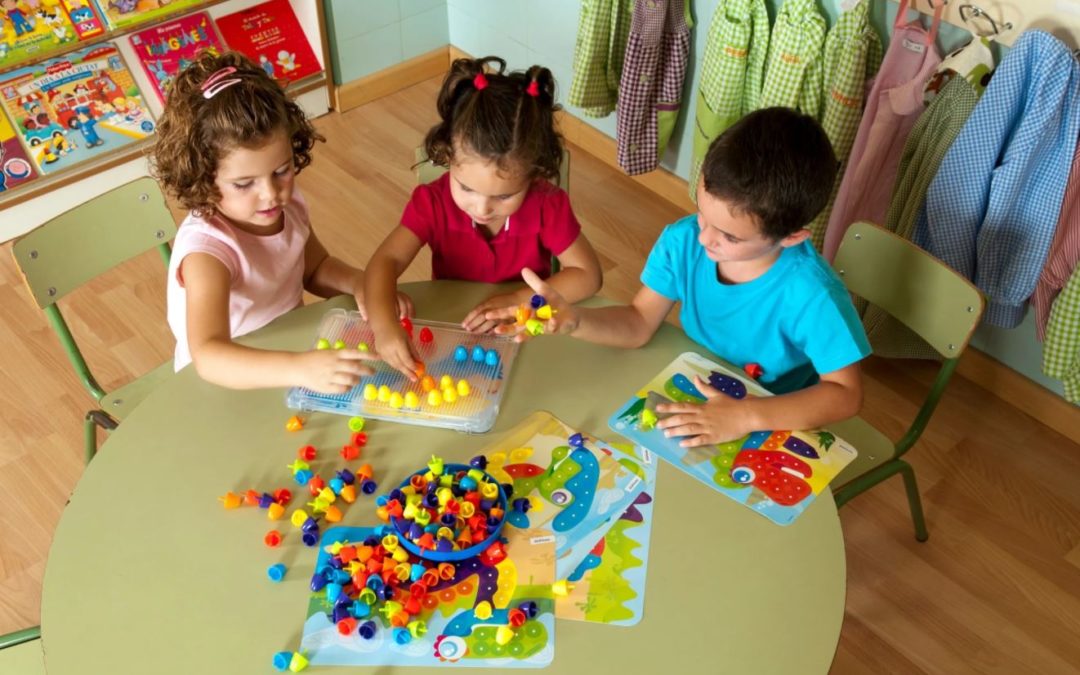
.png)
